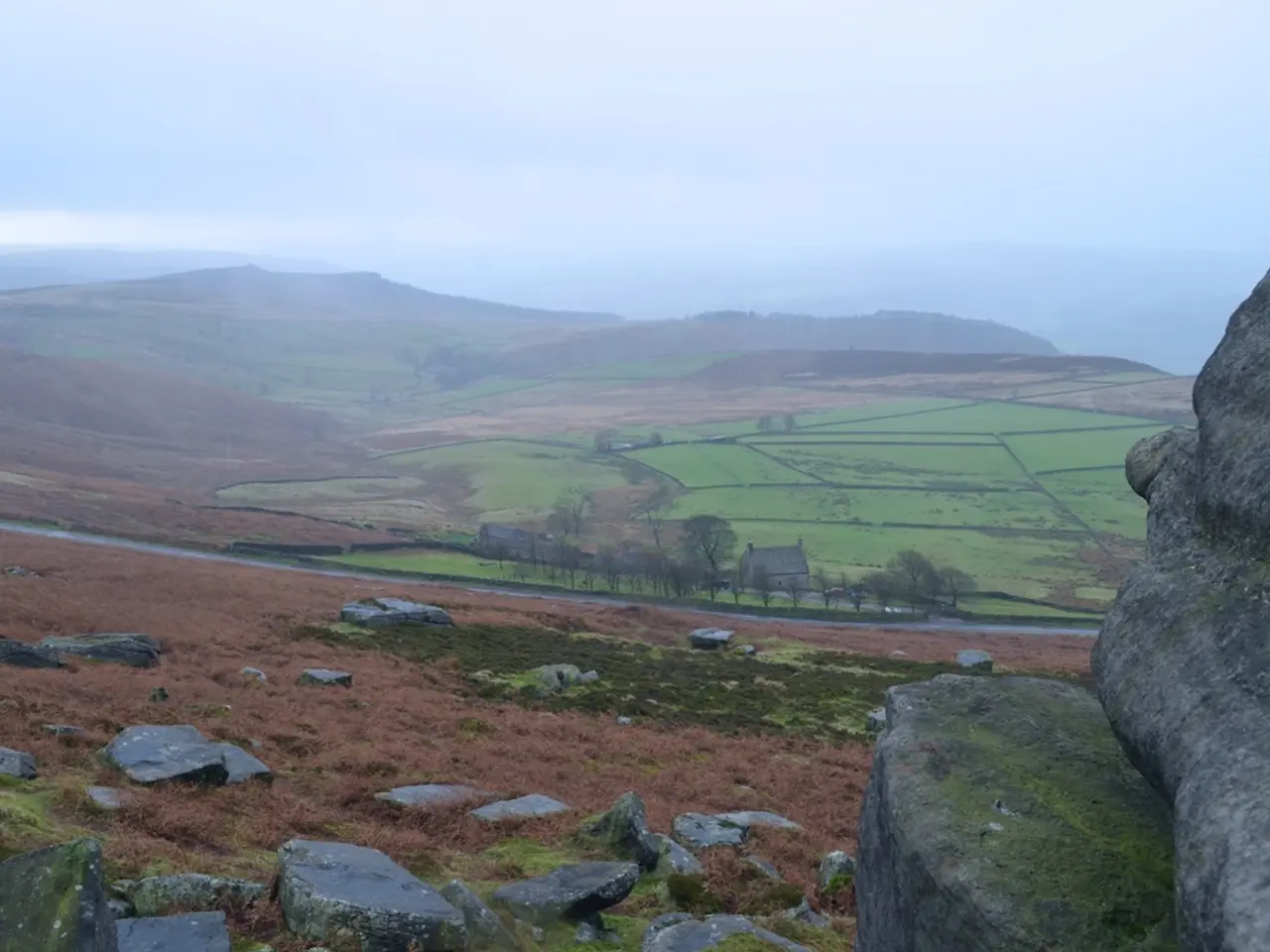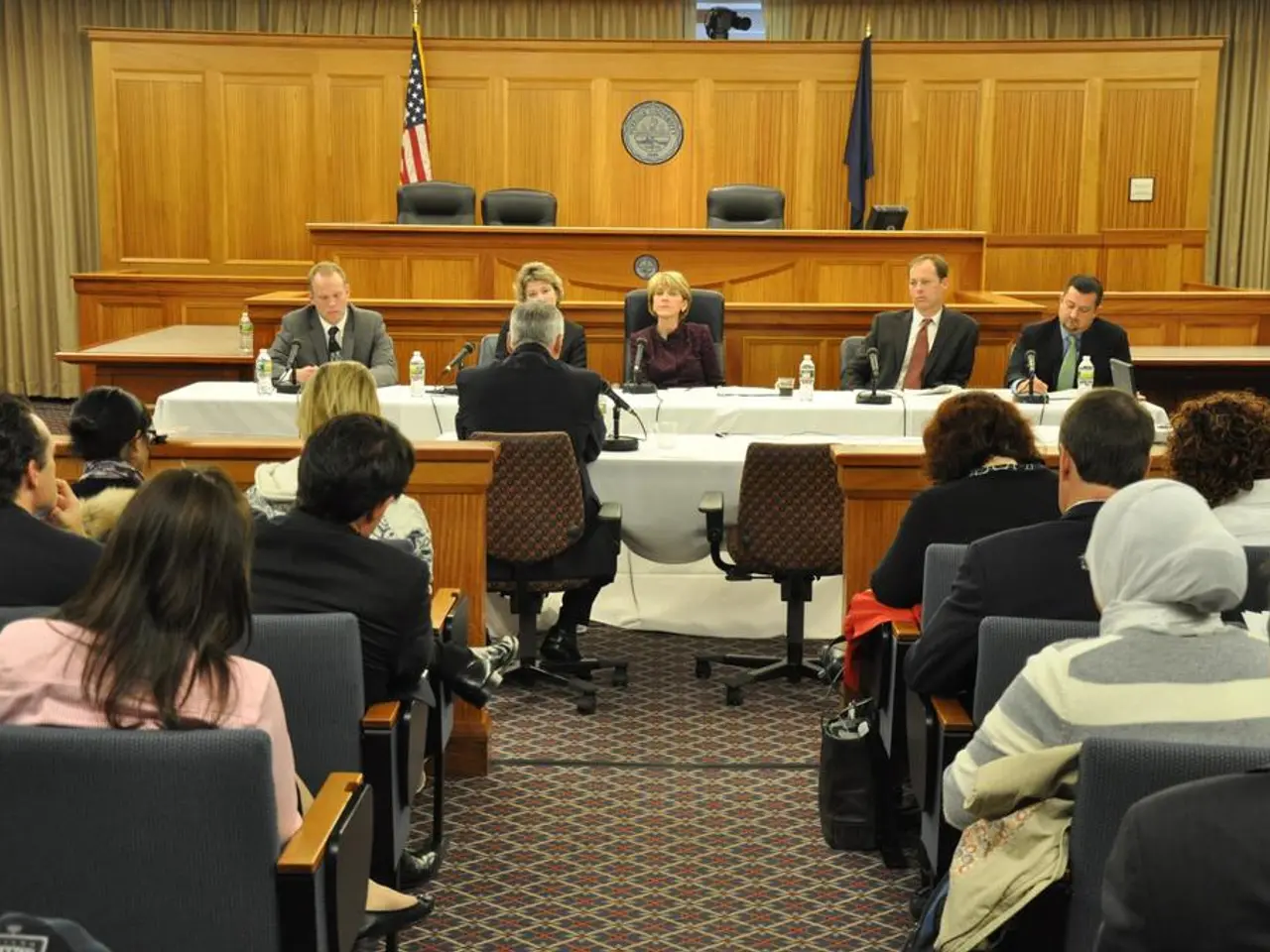Political System Comparison: Republic vs. Kingship
In a region where the cries for education, access to markets, sustainable forest rights, and genuine representation have long echoed, the recent visit of an unnamed Governor to Kondagaon, India, left many questioning the true nature of democracy. The monetary cost of the visit, diverted from funds meant for rural development, and the local administration's time, resources, and attention consumed by "managing" the visit, raised concerns that the visit was more about impression than empowerment.
The visit featured a well-rehearsed monologue and painfully choreographed "participation," replacing genuine consultation. The true spirit of democracy was not observed, as the Governor's visit lacked the elements of self-determination, meaningful participation, and respect for Indigenous governance systems. Instead, the visit was a spectacle of sanitized facades, filtered truths, and orchestrated silence.
Walls were erected and jute curtains hung to shield the Governor's eyes from the poverty that might disturb the carefully curated narrative. Local tribal women, farmers, and children were herded into pre-approved "welcome" zones under the scorching sun. Yet, tribal voices, especially women and youth, have long demanded education, access to markets, sustainable forest rights, and genuine representation, but these demands were neither acknowledged nor discussed during the visit.
Contrasting with the orchestrated spectacle in Kondagaon, effective democratic engagement in tribal regions involves empowering Indigenous governance systems, ensuring genuine participation and autonomy, and addressing structural inequalities. Examples from Native American self-governance and collaborative policies in New Mexico illustrate this, as does India’s evolving approach emphasizing infrastructure and service delivery in tribal areas.
In Native American communities, self-government is a fundamental aspect of political structures, balancing group decisions with the protection of individual rights. The U.S. federal policy of tribal self-determination since 1968 allows tribes to control federal programs impacting them, promoting genuine agency rather than imposed governance. In New Mexico, the State Tribal Collaboration Act requires state agencies to adopt active collaboration and communication policies with tribes, fostering positive government-to-government relationships.
India's Dharti Aaba Janjatiya Gram Utkarsh Abhiyan, initiated in 2024, aims to integrate tribal regions through governance and development, not only security or law enforcement. Unlike the orchestrated spectacle in Kondagaon, this campaign seeks to build state presence through practical improvements and service delivery, recognizing tribal rights and addressing historical neglect.
As the Governor's visit to Kondagaon fades into memory, the blistered feet of those forced to march in false welcome keep asking: Is this democracy, or just its illusion? The visit left lasting questions about the role of constitutional figures in tribal lands: Will they continue to visit as rulers, or walk with the people? The real Bastar needs constitutional guardians who listen, stay, learn, not just pass through.
The Governor's visit, devoid of genuine consultations and respect for Indigenous governance systems, questioned the authenticity of democracy. This contrasts starkly with effective democratic engagement, which emphasizes empowering local governance, fostering participation, and addressing structural inequalities, as illustrated in Native American self-governance and the State Tribal Collaboration Act in New Mexico, or India's Dharti Aaba Janjatiya Gram Utkarsh Abhiyan that focuses on integrating tribal regions through governance and development.







